Understanding What You're Facing
Gambling addiction is real. It's not a character flaw. It's a medical condition.
The American Psychiatric Association recognizes it. It's in the Diagnostic and Statistical Manual. That's the DSM-5. It's classified as an impulse control disorder. It's a behavioral addiction. This matters. It means real treatment exists.[1][2][3]
Gambling addiction affects the brain. Your brain's reward system gets affected. It works like substance abuse. Like drug addiction. Your brain chemistry changes. That's why it feels so powerful.[3]
The numbers are serious. Between 0.5% to 2.5% of UK adults have problem gambling. That's about 1.3 million people. Gambling addiction hides well. It stays hidden until damage occurs.[4][5]
Sports betting has grown. The 2018 US Supreme Court decision legalized it. Sports wagers jumped from $4.9 billion (2017) to $121 billion (2023). Nearly all (94%) happens online. Online gambling sites create the highest.[6][7]
Young adults are most vulnerable. Among 18-24 year olds in Great Britain, 21.9% have problem gambling. 5.3% meet criteria for severe gambling disorder. Young brains are still developing. Environmental factors hit harder during this period.[8]
Why sports betting hooks harder
Sports betting gambling behavior is different to casino gambling. The key difference? The illusion of skill.[9][10]
You know the teams and understand form. You know injuries and track the weather. Surely you have an edge? The math says no - fewer than 2% profit long-term. The average bettor loses roughly 15% yearly. Bookmakers guarantee these results. Your knowledge doesn't matter.[11][12]
Several risk factors make sports betting dangerous.
- Chasing losses becomes automatic. You lose money. You immediately bet more trying to recover. You keep losing money gambling.
- Near-miss psychology affects you. Losses feel like wins. Your brain's reward system responds. So you keep betting.
- Mobile apps make it constant. Research shows higher addiction rates.[10]
- Social normalization is everywhere. The NFL, NBA, NHL, MLB partner with sportsbooks. Betting is mainstream.
Casino gambling's different trap
- Casino gambling is pure chance. Slots. Roulette. Blackjack. Card games.
- Online gambling sites run 24/7, betting shops are gone. Now it's digital.
- Slot machines trigger reward pathways. Lights and sounds activate dopamine. You're chasing that hit. Not profit.
- Online gambling websites are worse. No closing time. No social pressure. Just algorithms designed to addict.
Crisis Support - Available Right Now
If you're in crisis or thinking about suicide, reach out now.
- Emergency Services: 999 (UK) / 911 (US)
- Samaritans (UK): 116 123 (free, 24/7)
- National Gambling Helpline (UK): 0808 8020 133 (24/7)
- National Council on Problem Gambling (US): 1-800-522-4700
- Gambling Therapy: gamblingtherapy.org
Save these numbers now!
Are You Seeing These Warning Signs?
Gambling addiction develops gradually. Being honest about signs matters.
Financial red flags
- Your betting amounts keep increasing. You're losing money gambling. You can't stop.
- Chasing losses is automatic. You lose $100. You immediately bet $200. Repeated unsuccessful efforts fail. You keep trying though. The cycle continues.
- Money problems have increased. You're hiding debt. You're using credit cards. You need help with financial problems. Bankruptcy and legal problems loom.
- You've made gambling money decisions. You haven't checked your card game statements. You don't know your situation.
Behavioral changes
- Time spent gambling exploded. You research gambling websites. You check gambling sites constantly. You plan your next bet. Gambling occupies your mind.
- Restlessness appears when not gambling. That's brain chemistry changing. Discomfort without betting is a major red flag.
- You're betting on sports you don't follow. Playing card games you don't understand. Just for action.
Emotional Indicators
- Guilt, shame, and secrecy dominate. Your family life suffers. Relationships strain.
- Mood swings tie to outcomes. Wins bring temporary highs. Losses trigger crashes. Your mental health deteriorates.
- Gambling became your stress tool. You escape mental disorders. This creates negative consequences. Your health problems worsen.
- Suicide attempts become possible. Gambling problems can lead here. Financial destruction. Relationship loss. Mental health crisis. If you have these thoughts, call emergency services now.
If multiple signs apply, professional mental health support is essential.
Getting Real Help That Actually Works
Good news: gambling disorder responds to treatment. Recovery from gambling is possible.
United Kingdom resources
GamCare offers comprehensive free support.[13][14][15]
- Phone: 0808 8020 133 (24/7)
- WhatsApp: 020 3031 8881
- Website: gamcare.org.uk
- Services: Counseling, group therapy, family support, peer support
BeGambleAware funds treatment [16][17]
- Phone: 0808 8020 133
- Website: begambleaware.org
- Services: Treatment directory, self-assessment, resources
NHS Treatment Services offer specialist support.[5][18]
- Access: GP or NHS 111
- Services: CBT, group sessions, psychiatric help
Gamblers Anonymous UK runs 12-step meetings.[19][20]
- Phone: 0330 094 0322
- Website: gamblersanonymous.org.uk
- Services: Anonymous meetings in-person and online, sponsorship
United States resources
National Council on Problem Gambling provides national support.[21][22]
- Phone: 1-800-522-4700 (24/7)
- Chat: ncpgambling.org/chat
Gamblers Anonymous USA offers recovery nationwide.[23]
- Website: gamblersanonymous.org
- Services: Meeting finder, anonymous meetings, literature
Global support
Gambling Therapy offers free multilingual support.[24]
- Website: gamblingtherapy.org
- Services: Live chat, email, peer forums
Understanding responsible gambling practices helps you identify which operators prioritize player safety. Learn about responsible gambling practices, including how to recognize warning signs and what tools are available. Also, to see how we evaluate safety, fairness, and trust across casinos, read How We Rate Gambling Sites – Our Review Process.
Understanding Treatment Options
- Cognitive Behavioral Therapy (CBT) is gold-standard. It addresses gambling behavior and thoughts triggering urges.[25][1]
- Motivational Interviewing helps you find motivation. Effective when you're unsure about stopping.
- Medication treats underlying issues. Many people have bipolar disorder. Depression. Anxiety. Substance abuse treatment parallels apply. Professional treatment for the underlying condition matters.[3]
- Support Groups provide peer support. Understanding from others. Gamblers Anonymous. SMART Recovery. Alcoholics Anonymous principles. Family therapy helps.
- Residential Treatment helps severe cases. Professional mental health professionals guide recovery.
Self-Help Tools That Work
GAMSTOP (UK only)
Free service. Blocks UK-licensed gambling sites.[26][27][28]
- Website: gamstop.co.uk
- Exclusion: 6 months, 1 year, or 5 years
- Coverage: Online gambling, sports betting, casinos, slots
Important: Only covers licensed operators. Black market gambling websites remain accessible. Stop gambling by removing access to main sites.
Blocking software
- Gamban: Device-level blocking. Comprehensive. Costs money.
- BetBlocker: Free. Helpful.
- Cold Turkey: Blocks websites effectively.
Financial management
- Contact your bank and block gambling transactions. Stop gambling by removing payment options.
- Create separate accounts. One for bills. One for limited spending. Managing money becomes easier.
- Use prepaid cards. Set amount. When gone, it's gone.
- Get professional help. StepChange (UK) or National Foundation for Credit Counseling (US). Free debt counseling. They understand money problems from gambling specifically.
Supporting Someone You Care About
If someone you love is struggling, you're affected too. Your family life is impacted and finances are at risk.
It's difficult to support someone.
Communication that works
- Express concern without judgment. Simple approach.
- Listen more than lecture. Hear family members. When they open up, don't interrupt.
- Focus on specific behaviors. Not character attacks.
- Set clear boundaries. "I love you but I won't pay gambling debts."
Practical support
- Help research treatment. Offer to attend appointments. Don't take complete control. They need to participate in their own recovery.
- Help with financial planning. But don't control everything. They need to rebuild financial responsibility themselves. They need to learn managing money.
- Encourage professional treatment consistently.
- Protect yourself. Secure your accounts.
Support for family members and friends
Gam-Anon supports families and friends.[29]
- Website: gamanon.org.uk (UK) / gam-anon.org (US)
- Services: Support groups, meetings, online resources
You deserve support too. You're not responsible for their recovery.
Building Your Recovery Path
Recovery isn't straight. Sometimes steady. Sometimes headwinds. Direction matters more than speed.
First 30 days: Crisis management
- Complete financial assessment. Write down every debt. All of it.
- Implement blocking tools. GAMSTOP. Gamban. Bank blocks.
- Start professional treatment now. Support groups now.
- Develop alternatives. Break gambling patterns.
Months 1-6: Building foundations
- Attend support groups regularly. Weekly attendance matters. Peer support matters.
- Create daily routines. Boredom is a relapse risk factor.
- Address underlying mental disorders. Were you gambling to escape depression? Anxiety? These need treatment too. Mental health professional input helps.
- Rebuild relationships. Consistent action matters.
6+ Months: Long-Term maintenance
- Continue peer support. Continue professional treatment. Gambling addiction needs lifetime management. Like substance abuse treatment.
- Develop relapse prevention. Identify high-risk situations. Plan for them. Environmental factors matter.
- Build overall life satisfaction. Recovery isn't just "not gambling." It's building a life worth living.
- Help others once stable. Supporting others reinforces recovery.
Managing cravings
- Cravings are temporary. They pass. Usually 10-20 minutes.
- Use distraction. Exercise works. Endorphins help.
- Practice mindfulness. Let cravings exist. Don't act.
- Remember consequences. The specific shame. The stress you felt.
- Call your support network immediately.
All information on this page follows our Editorial Guidelines – Our Editorial Code, Standards & Processes, ensuring accuracy, transparency, and up-to-date references.
Questions About Gambling Addiction & Recovery
They're the same condition. Professionals use "gambling disorder." Everyday language uses "gambling addiction." Both mean the same thing.
Yes. The American Psychiatric Association lists "Gambling Disorder." It's in the Diagnostic and Statistical Manual. It's an official diagnosis. Insurance covers treatment.
Gambling activates the same pathways as substance abuse. Your brain's reward system gets conditioned. It craves the stimulus. That's why it feels powerful.
Some people do. Most benefit from professional treatment. Family therapy helps. Support groups help. Self-exclusion helps. Professional mental health professionals have expertise.
Chasing losses is a symptom. Your brain recognizes loss. It triggers the reward system. Recovery from gambling requires addressing this pattern. It's neurological. Not a character flaw.
Yes. Gambling addiction correlates with suicide attempts. Financial destruction. Relationship loss. Mental health crisis. All create suicide risk. If you have suicide thoughts, call emergency services now.
Compulsive gamblers can't stop. Recreational bettors gamble occasionally. Compulsive gambling meets diagnostic criteria. It's an addictive disorder. It requires professional treatment.
They share brain pathways. They correlate highly. People with substance use disorders face higher gambling risk. Substance abuse treatment professionals often help with gambling too. Treatment addresses both.
Yes. Availability of gambling sites. Social normalization. Early gambling exposure. Stress. Family history. Mental health issues. All increase risk.
Most improve within 3-6 months of intensive professional treatment. Many benefit from ongoing support for years. Recovery timelines vary. Nobody can predict exactly. Each person's path is different.
Our Industry's Commitment
Gambling operators face regulatory requirements. Many approach this minimally. They bury support links. They hide gambling tools. They make token donations.
That's not adequate.
The industry owes players honest information about gambling risk factors. Meaningful support. Genuine advocacy. Significant funding for treatment options and recovery from gambling.
Recovery Is Possible
If you're struggling with gambling addiction right now—whether sports betting, casino gambling, or online gambling—understand this: you're not alone. Recovery is absolutely possible. Millions have rebuilt lives.
You can be one of them.
For immediate support, contact the National Gambling Helpline at 0808 8020 133 (UK) or your local emergency services.
For comprehensive independent reviews of licensed gambling operators you are in the right site. Our reviews help you make informed decisions about which platforms align with responsible gambling.
If you have suggestions for resources or spot errors, please contact us.
Content sourced from peer-reviewed research, UK Gambling Commission data, National Council on Problem Gambling publications, and authoritative mental health organizations (2022-2025).
References:
- https://www.gatewayfoundation.org/blog/dsm-5-gambling/
- https://portal.ct.gov/-/media/dmhas/pgs/dsmdiagnosispdf.pdf
- https://pmc.ncbi.nlm.nih.gov/articles/PMC4458066/
- https://www.theguardian.com/society/article/2024/jul/25/harm-from-problem-gambling-in-uk-may-be-eight-times-higher-than-thought-research-finds
- https://www.priorygroup.com/addiction-treatment/gambling-addiction-treatment/gambling-statistics
- https://today.ucsd.edu/story/study-reveals-surge-in-gambling-addiction-following-legalization-of-sports-betting
- https://www.cbsnews.com/news/gambling-addiction-online-search-surge-sports-betting/
- https://www.statista.com/statistics/543465/problem-gamblers-united-kingdom-uk/
- https://scholarworks.uark.edu/mktguht/104/
- https://www.ncpgambling.org/wp-content/uploads/2023/09/Sports-gambling_NCPGLitRvwExecSummary.pdf
- https://gamblingharm.org/sports-betting-addiction-statistics/
- https://www.addictionhelp.com/gambling/statistics/
- https://advicefinder.turn2us.org.uk/Home/Details/2764
- https://www.gamcare.org.uk/get-support/talk-to-us-now/
- https://www.gamcare.org.uk
- https://find-and-update.company-information.service.gov.uk/company/04384279
- https://www.scams.info/blog/responsible-gambling/gambleaware/
- https://www.thalamos.co.uk/resources/gambling-addiction-related-medical-support-demand-surge/
- https://www.ppf.org.uk/news/how-to-use-gamstop/
- https://selmind.org.uk/directory/gamcare/
- https://www.ncpgambling.org/help-treatment/about-the-national-problem-gambling-helpline/
- https://www.ncpgambling.org/help-treatment/
- https://www.actionnetwork.com/education/problem-gambling-helplines-by-state
- https://www.gambleaware.org/tools-and-support/support-in-your-area/service-finder-results/gamcare-national-gambling-helpline/
- https://www.helpguide.org/mental-health/addiction/gambling-addiction-and-problem-gambling
- https://nonstopcasino.co.uk/articles/gamstop/
- https://www.gamblingcommission.gov.uk/contact-us/guide/page/self-exclusion-with-gamstop
- https://www.gamstop.co.uk/register
- https://www.gamcare.org.uk/self-help/self-exclusion/






